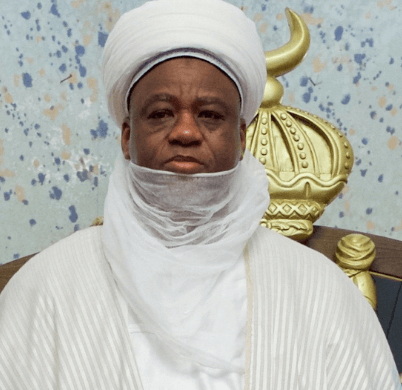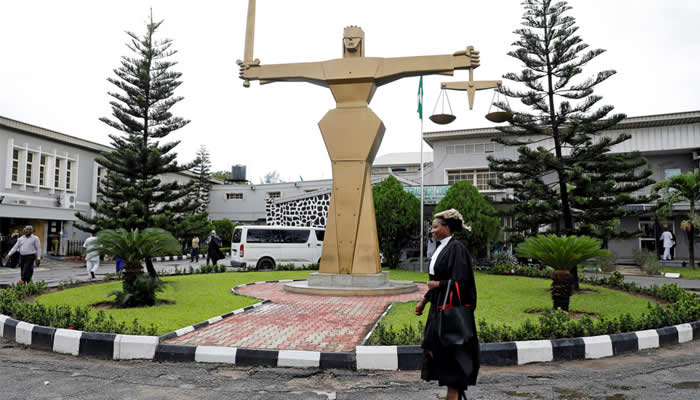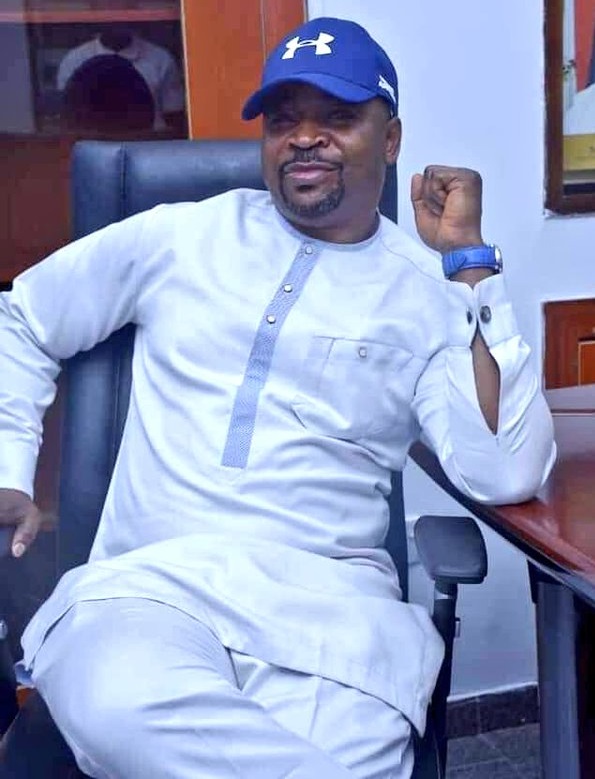ENUGU, Nigeria – August 25, 2025 – The Sultan of Sokoto, Muhammadu Sa’ad Abubakar, has raised a clarion call against the growing corruption and inequality plaguing Nigeria’s justice system, warning that justice is increasingly becoming a commodity that can be bought and sold, leaving the poor to suffer while the rich evade accountability. Speaking as a guest at the Annual General Conference of the Nigerian Bar Association (NBA) in Enugu State on Sunday, August 24, 2025, the revered monarch emphasized that pervasive corruption is undermining the foundation of the nation’s courts, eroding public trust and exacerbating social disparities. “Justice is increasingly becoming a purchasable commodity, and the poor are becoming victims of this kind of justice, while the rich commit all manner of crime and walk the streets scot-free,” he declared. While commending Nigerian lawyers for their contributions, the Sultan urged them to uphold the honor of their profession, prioritizing truth and fairness over money and personal interests. This report provides a detailed analysis of the Sultan’s remarks, the context of Nigeria’s judicial challenges, the role of the legal profession, and the broader implications for justice, governance, and social equity in Nigeria.
The Sultan’s Stark Warning on Judicial Corruption
The Sultan of Sokoto, Muhammadu Sa’ad Abubakar, delivered a powerful and sobering message at the Nigerian Bar Association’s Annual General Conference held in Enugu, a vibrant city in Nigeria’s South-East region. As one of Nigeria’s most influential traditional and religious leaders, the Sultan’s remarks carried significant weight, resonating with the lawyers, judges, and legal professionals gathered at the event. His assertion that Nigeria’s justice system is “fast turning into something that can be bought and sold” highlighted a critical issue that has long plagued the nation’s judiciary: systemic corruption that disproportionately disadvantages the poor while allowing the wealthy to evade accountability.
“Justice is increasingly becoming a purchasable commodity, and the poor are becoming victims of this kind of justice, while the rich commit all manner of crime and walk the streets scot-free,” the Sultan stated, painting a grim picture of a judicial system where financial influence overshadows fairness. This statement reflects a growing public perception that wealth and connections often determine legal outcomes, leaving marginalized communities without recourse. The Sultan’s remarks come at a time when Nigeria is grappling with widespread socioeconomic challenges, including a 21.88% headline inflation rate and a 38.9% poverty rate, as reported by the National Bureau of Statistics (NBS) in July 2025, which exacerbate the impact of judicial inequality on the poor.
The Sultan’s address was not merely a critique but also a call to action. While acknowledging the contributions of Nigerian lawyers, he urged them to restore the integrity of their profession. “It is only when the legal profession leads by example that the public can trust the system again,” he said, emphasizing that lawyers and judges have a pivotal role in rebuilding confidence in the judiciary. By prioritizing truth and fairness over financial gain and personal interests, the legal profession can reclaim its status as a bastion of justice and equity, the Sultan argued.
The Context: Nigeria’s Judicial Challenges
The Sultan’s remarks must be understood within the broader context of Nigeria’s judicial and societal challenges. Nigeria’s judiciary, intended to be an independent pillar of democracy, has faced persistent allegations of corruption, inefficiency, and bias. Transparency International’s 2024 Corruption Perceptions Index ranked Nigeria 145 out of 180 countries, reflecting deep-seated issues in public institutions, including the judiciary. High-profile cases, such as the prolonged trials of corrupt politicians and business moguls, often end in acquittals or lenient sentences, fueling perceptions that justice is for sale.
The poor, who constitute 38.9% of Nigeria’s 220 million population according to the World Bank, bear the brunt of this systemic failure. Limited access to legal representation, coupled with exorbitant legal fees and bribery demands, prevents many from seeking justice. For example, a 2023 report by the Socio-Economic Rights and Accountability Project (SERAP) found that 70% of Nigerians in rural areas could not afford legal services, leaving them vulnerable to exploitation in disputes over land, labor, and human rights. Meanwhile, wealthy individuals and corporations often secure favorable outcomes through financial influence or political connections, as seen in cases where high-profile defendants secure bail or dismissals despite substantial evidence.
The Sultan’s reference to the rich walking “scot-free” highlights a broader issue of impunity. Corruption scandals involving public officials, such as the 2023 misappropriation of N32.7 billion from the Ministry of Humanitarian Affairs, have fueled public distrust. The Economic and Financial Crimes Commission (EFCC) has made strides in recovering looted funds, but delays in prosecutions and perceived leniency toward elite offenders undermine these efforts. The Sultan’s remarks echo public frustration, as evidenced by a 2024 Afrobarometer survey, which found that 65% of Nigerians believe the judiciary favors the wealthy.
Economic pressures exacerbate these challenges. The NBS reported a 22.74% food inflation rate in July 2025, driven by the naira’s 41.4% depreciation in 2024, making basic necessities unaffordable for many. The Central Bank of Nigeria’s 26.75% Monetary Policy Rate has increased borrowing costs, limiting economic opportunities for the poor. In this context, an inequitable justice system further marginalizes vulnerable populations, perpetuating a cycle of poverty and injustice.
The Role of the Legal Profession
The Sultan’s call for lawyers to lead by example underscores the pivotal role of the legal profession in addressing judicial corruption. The Nigerian Bar Association, with over 100,000 members, is a powerful institution capable of driving reform. Lawyers and judges, as gatekeepers of justice, have a responsibility to uphold ethical standards, ensure fair representation, and advocate for systemic change. However, the profession has faced criticism for complicity in corrupt practices, with some lawyers allegedly facilitating bribery or delaying cases to extract fees.
The Sultan’s commendation of Nigerian lawyers acknowledges their potential to effect change. “The legal profession remains one of honor,” he said, urging practitioners to prioritize truth and fairness. This call aligns with the NBA’s 2025 theme, “Justice for All,” which emphasizes access to justice and professional integrity. Initiatives like pro bono services, legal aid clinics, and anti-corruption training could help restore public trust, as could stricter enforcement of the NBA’s Code of Conduct, which prohibits unethical practices.
The judiciary itself must also reform. The National Judicial Council (NJC), responsible for judicial oversight, has disciplined erring judges, with 15 sanctioned for misconduct in 2024. However, more robust measures, such as transparent case management systems and whistleblower protections, are needed to curb corruption. The Sultan’s remarks at the NBA conference provide a platform for galvanizing these efforts, urging lawyers and judges to champion accountability.
Stakeholder Reactions
The Sultan’s remarks elicited widespread reactions from stakeholders. NBA President Yakubu Maikyau praised the monarch’s candor, stating, “The Sultan has spoken truth to power. We must heed his call to restore integrity.” Civil society leader Kolawole Oluwadare of SERAP echoed this sentiment, saying, “Judicial corruption undermines democracy. The Sultan’s words are a wake-up call.” Community leaders, such as Chief Adebayo Ogunleye in Osun, expressed hope, stating, “If lawyers lead with honor, we can trust the courts again.”
However, some stakeholders highlighted challenges. “Reforming the judiciary requires political will,” said legal scholar Dr. Amina Mohammed. “Corrupt elites benefit from the status quo.” Citizens like Funmi Adewale, a trader in Lagos, voiced frustration: “The poor suffer while the rich buy justice. We need action, not just words.” The EFCC, through spokesperson Dele Oyewale, committed to supporting judicial reform, stating, “We will continue to prosecute corrupt officials to ensure accountability.”
Implications for Nigeria
The Sultan’s remarks have profound implications for Nigeria’s governance and social equity. A corrupt judiciary undermines the rule of law, erodes public trust, and hinders development. Reforming the system could restore confidence, ensuring that justice serves all Nigerians, not just the elite. This aligns with the Renewed Hope Agenda of President Bola Tinubu, which prioritizes governance and social inclusion.
Economically, a fair judiciary could attract foreign direct investment (FDI), which fell to $3.3 billion in 2024 (UNCTAD), by ensuring contract enforcement and dispute resolution. Socially, it could address grievances, reducing tensions that fuel insecurity, such as the 8,000 deaths from violent incidents in 2024 (Nigeria Security Tracker). Globally, a reformed judiciary would enhance Nigeria’s reputation, supporting its role in international forums like the African Union.
Challenges and Opportunities
Challenges:
Systemic Corruption: Deep-rooted bribery and influence peddling require comprehensive reforms.
Economic Pressures: Inflation (21.88%) and poverty (38.9%) exacerbate the demand for accessible justice.
Resource Constraints: Limited funding for legal aid and judicial infrastructure hinders progress.
Elite Resistance: Powerful interests may oppose reforms that threaten their impunity.
Opportunities:
Legal Reforms: Implementing transparent case management and anti-corruption measures.
Public Advocacy: Leveraging civil society and the NBA to push for change.
Pro Bono Services: Expanding access to justice for the poor.
International Support: Collaborating with organizations like the UN to strengthen judicial systems.
Policy Recommendations
Strengthen Oversight: Empower the NJC to sanction corrupt judges swiftly.
Expand Legal Aid: Fund pro bono services to support the poor.
Promote Transparency: Implement digital case management systems to reduce bribery.
Enhance Training: Provide ethics training for lawyers and judges.
Engage Communities: Educate citizens on their rights to foster accountability.
Conclusion
The Sultan of Sokoto’s warning about the commodification of justice in Nigeria is a critical call for reform. By urging lawyers to uphold integrity, he highlights the legal profession’s role in restoring trust in the judiciary. In a context of economic hardship and systemic corruption, addressing judicial inequality is essential for Nigeria’s development. Through robust reforms, expanded legal aid, and public advocacy, Nigeria can build a justice system that serves all, ensuring fairness and equity for its 220 million citizens.









